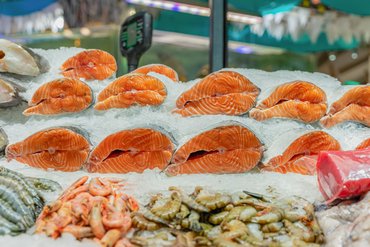Seafood fraud exists on a vast global scale, according to an analysis of 44 recent studies of more than 9,000 seafood samples, reports The Guardian. The study, which included samples from restaurants, fishmongers, and supermarkets in more than 30 countries, found that 36 percent of the samples were mislabeled.
Sometimes fish were labelled as different species of the same family that were cheaper or more common. However, sometimes, mislabeled samples were actually endangered or vulnerable species. At times, samples even proved to be “not entirely of aquatic species,” with one study revealing prawn balls sold in Singapore often contained pork and no trace of prawn.
According to Beth Lowell, deputy vice president for U.S. campaigns at Oceana, an international organization focused on oceans, there are “so many opportunities along the seafood supply chain” to falsely label low-value fish as high-value species, or farmed fish as wild.
There is a lot of money to be made in falsely labeling low-value fish as high-value ones, and even more in “laundering” illegally caught fish, according to Rashid Sumaila, a fisheries economist at the Institute for the Oceans and Fisheries at the University of British Columbia. In a 2020 study, it was calculated that between 8 and 14 million metric tons of fish are caught illegally every year. Full Story
Related: Seafood Sales Outpace Produce, Meat, Deli; Stop & Shop Increases Transparency Around Seafood Offerings.

